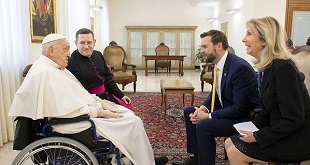
New accounting officers have to walk thin line between service and politics
Kampala, Uganda | IAN KATUSIIME | Ramathan Ggoobi and Lucy Nakyobe who a month ago were rumoured to be joining cabinet have been rewarded with top posts in the civil service in the latest reshuffle of government by President Museveni after cabinet, and the army.
Long serving Secretary to the Treasury, Keith Muhakanizi, who has been at the ministry of finance since graduation from Makerere University was sent to Office of the Prime Minister (OPM) as Permanent Secretary. Muhakanizi is not in good health and many saw the transfer as the road to retirement.
His replacement is Ggoobi, an economics lecturer at Makerere University Business School, working closely with government. He sits on the board of Uganda Development Corporation, was on Museveni’s 2021 election committee and is a known protégé of Gen. Salim Saleh, the President’s young brother influential in running government.
Used to the idealism of offering economic commentary on Twitter, Ggoobi will have to brace himself for the cold reality of running the government’s cheque book coupled with the foot dragging and corruption that has been the tonic of Museveni’s government for decades. He will no longer have the luxury such as in 2019 when he tweeted about Muhakanizi decrying the level of government debt yet being the very person tasked with the responsibility of reining it in.
Museveni appointed Nakyobe, State House comptroller, as the new Head of Public Service- a position responsible for pushing for effective and dedicated public servants; streamlining recruitment of government employees, handling pension matters and ensuring integrity at a time when there is rampant abuse of public office in ministries, government agencies and departments. Nakyobe was replaced by Jane Barekye who has been a staff at State House.
The President has named a new batch of permanent secretaries as the government battles the economic devastation wrought by Covid19, now well in its second year, with a second lockdown underway in the country to stem the spread of new infections. Some of the new names include Irene Batebe (Energy), Kate Lamaro (Education) Joseph Musanyufu (Internal Affairs), Amin Zawedde (ICT).
Traditionally touted as the drivers of the government, permanent secretaries wield a lot of influence in how ministries spend money and execute government work such as implementing policy, awarding of tenders, rollout of projects, and emergency response. Their administrative duties and technical roles often lead to disagreements with ministers who are tasked with providing political guidance to ministries they head. The two are eventually tasked to work around their differences.
As the most senior civil servant in a ministry or department, they are the ministry’s/department’s accounting officers responsible for the monitoring and execution of the department’s budget and are therefore responsible for the overall management of the department.
In previous scenarios, Museveni has appointed permanent secretaries to fix perceived malaise at ministries only to get rid of them once they cross certain lines. In 2016, Museveni fired long serving PS at Energy Kabaliisa Kabagambe after stories of corruption became a mainstay at the ministry. He replaced him with a young and ambitious Stephen Isabalijja who apart from being board chair of Uganda Electricity Generation Company (UEGCL) was little known in Energy circles. Isabalijja was fired less than a year later after he cancelled an MoU with a Chinese energy conglomerate.
It is possible that Isabalijja did not understand the politics of the energy ministry including Museveni’s closeness to the Chinese. The energy ministry is at the heart of two hydropower projects; the still under construction 600M Karuma and the commissioned 183MW Isimba. As chair of UEGCL and PS, Isabalija and Kaliisa respectively squabbled over the supervision of the projects.
 The Independent Uganda: You get the Truth we Pay the Price
The Independent Uganda: You get the Truth we Pay the Price



